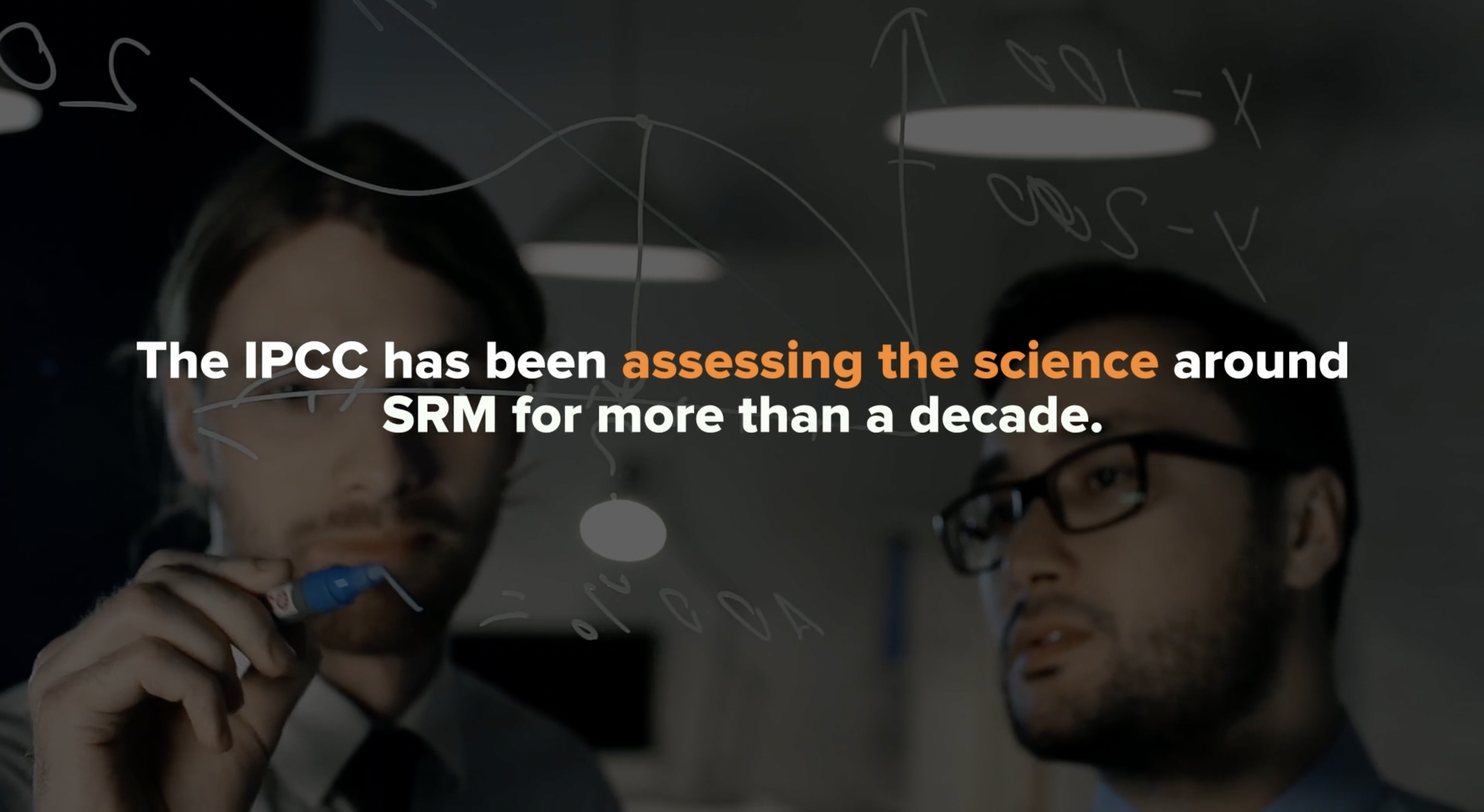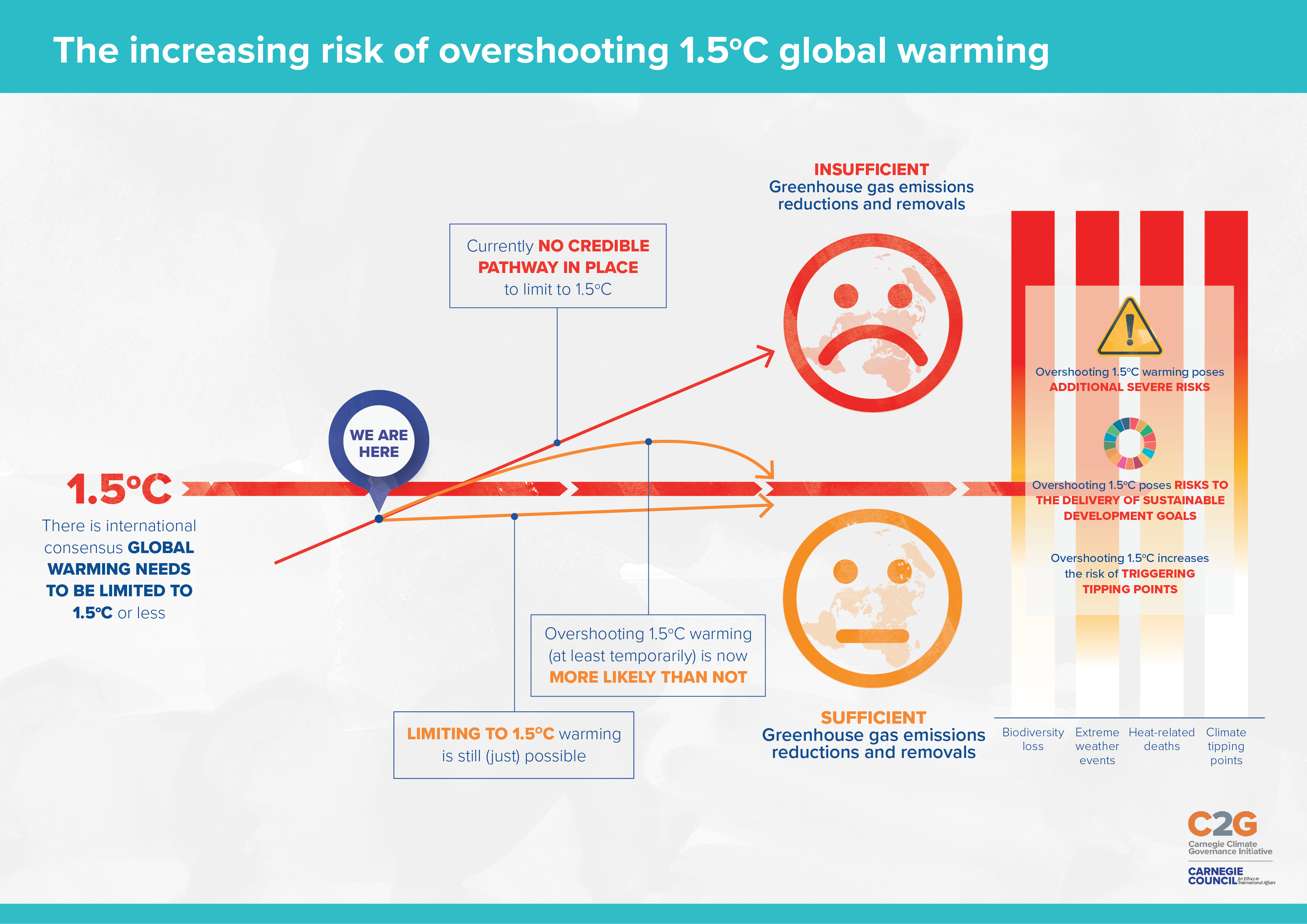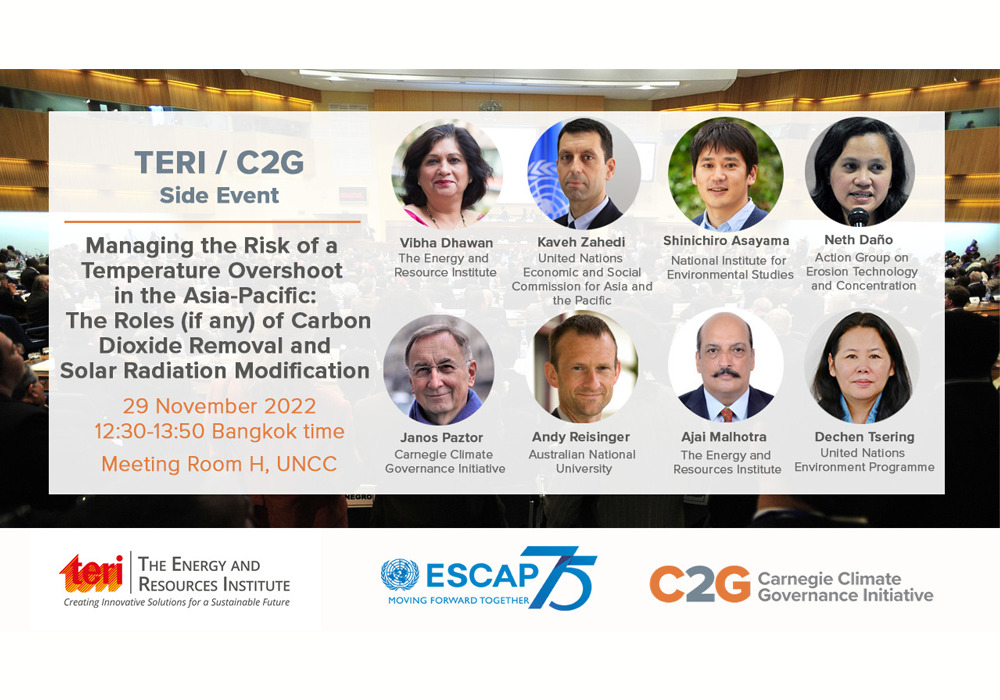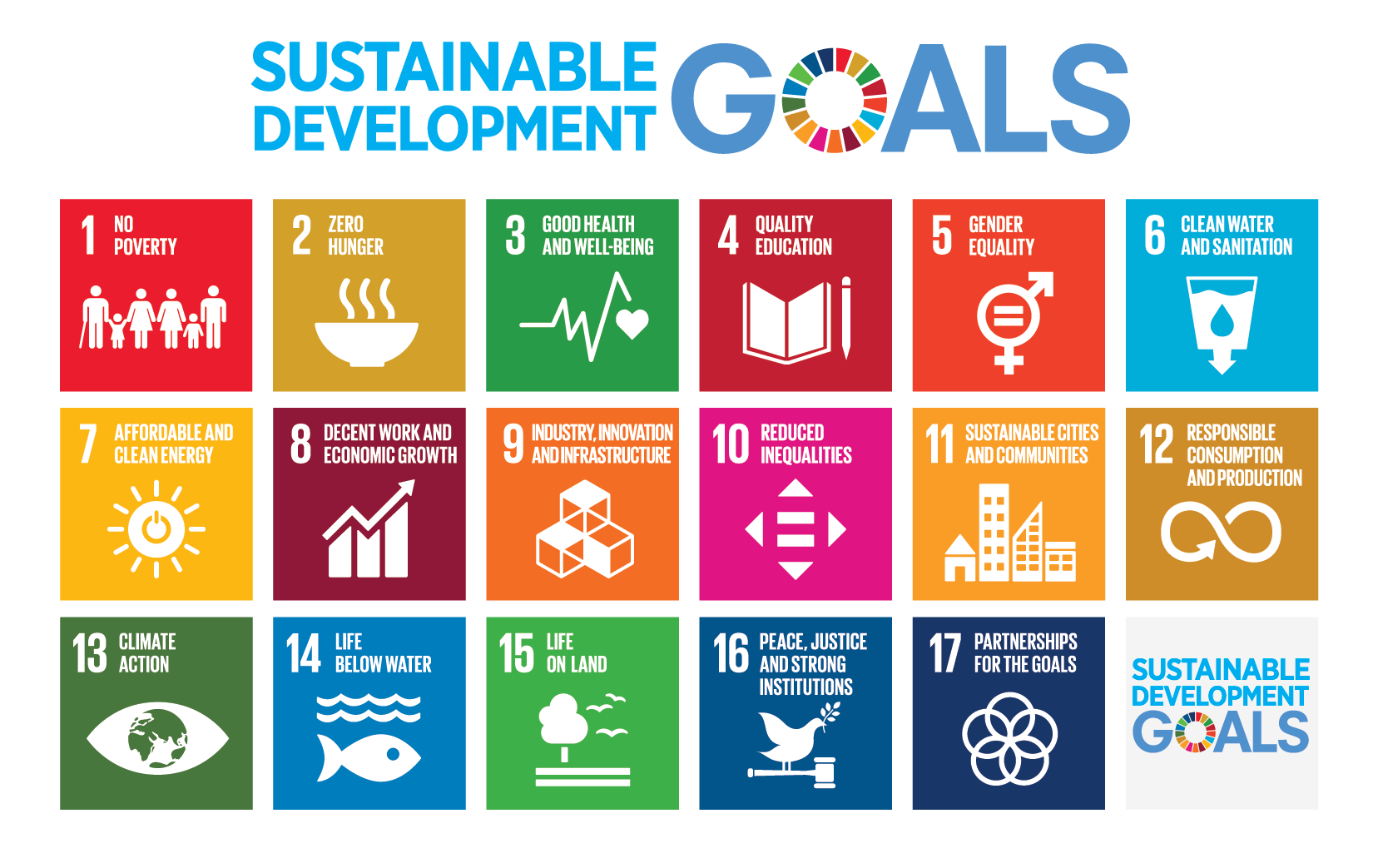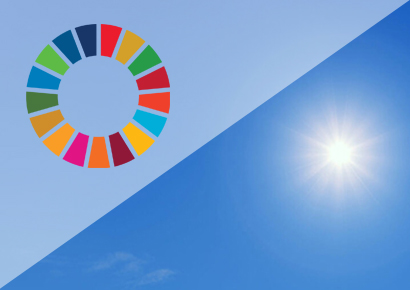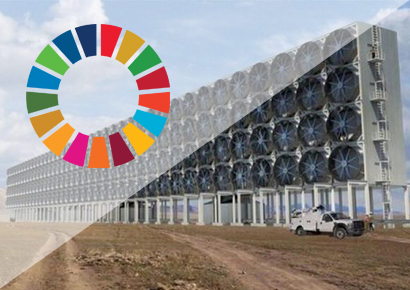Global Dialogue on Climate Cooperation and Governance
A virtual event between the Institute for Sustainable Development Goals, Tsinghua University (TUSDG), Center for Industrial Development and Environmental Governance, Tsinghua University (CIDEG), and Carnegie Climate Governance Initiative (C2G)
19 Oct 2023
17:00 – 19:00 Beijing time
Background:
The world is not on track to meet the Paris Agreement temperature goals. According to the latest reports released by the Intergovernmental Panel on Climate Change (IPCC), even in the lowest greenhouse gas emission scenarios, it is now more likely than not that global warming will temporarily exceed 1.5°C in the coming decades (overshoot). Overshooting the Paris Agreement temperature goals entails risks for both humanity and the ecosystems we depend on for survival, threatening the achievement of the Sustainable Development Goals (SDGs). In this context, some additional approaches such as solar radiation modification (SRM) have been proposed by scientists to confront the climate crisis.
SRM techniques seek to deliberately change the albedo of the Earth system, reflecting solar radiation back into space to limit warming. According to the IPCC, while some SRM techniques have the potential to reduce warming and ameliorate some climate hazards, they face large uncertainties and knowledge gaps, and would introduce new risks to people and ecosystems, which are not well understood. To make well-informed decisions for managing climate risks, will require the benefits and risks of these approaches to be assessed and compared to scenarios without their use, in a quickly warming world. The Sustainable Development Goals (SDGs) can be used as a basis for evaluating the risks and benefits of SRM in the context of sustainable development.
Highly vulnerable to climate change impacts, China is playing an important role in international efforts to strengthen climate change governance. China’s active engagement in governance discussions on SRM will be crucial.
Objective:
The purpose of this event is to raise awareness of decision makers and the general public, including younger audiences, about the issues relating to the risks from overshoot and governance of SRM.
Agenda
| Opening remarks | XUE Lan, Director of TUSDG, Dean of Schwarzman College, Tsinghua University |
|
Introductory speech Managing climate overshoot risk: potential role of SRM |
Thelma Krug (Brazil), Former Vice-Chair of IPCC |
| Keynote speech | HUANG Jing (China), Director General of the Administrative Centre for China’s Agenda 21 (ACCA21), Vice chairman of the Chinese Society for Sustainable Development, and Member of the China’s National Committee of Experts on Climate Change |
| Panel discussion |
Facilitator: Janos Pasztor, Executive Director, C2G Panelists:
|
| Question & Answer with the audience | Moderator: Xufeng ZHU, Executive Director, Institute for Sustainable Development Goals, Tsinghua University (TUSDG) |
Speakers
Dirk Messner, President, Federal Environment Agency (UBA), Germany

Jo Tyndall, Director, Environment Directorate, Organisation for Economic Co-operation and Development
Jo Tyndall is Director, Environment Directorate at the OECD where she oversees the implementation of the Directorate’s programme of work, covering a broad range of environmental issues, including: green growth; climate change; biodiversity; quality of ecosystems; eco-innovation; circular economy; and, resource productivity.
She was, most recently, New Zealand High Commissioner (Ambassador) to Singapore from February 2019 to September 2022. Prior to that, Jo served as New Zealand’s Climate Change Ambassador, commencing this role in June 2010. From 2016 to December 2018, she also co-chaired the United Nations Framework Convention on Climate Change’s (UNFCCC) Ad Hoc Working Group on the Paris Agreement (APA). As Climate Change Ambassador, she was head of delegation to the United Nations climate negotiations with the Ministry of Foreign Affairs and Trade.
Prior to her role as Climate Change Ambassador, Ms Tyndall was Director of the Broadcasting Unit in the Ministry for Culture and Heritage. From 1999 to 2006, she was Chief Executive of the public broadcasting funding body, NZ On Air. She has also served as Chief Executive of two screen industry organisations – the Screen Production and Development Association (SPADA) and Project Blue Sky (1994 to 1999).
Ms Tyndall began her career as a multilateral trade policy specialist with the then Department of Trade and Industry and subsequently the Ministry of Foreign Affairs and Trade.
Cheikh Ndiaye Sylla, Director of Ministerial Cabinet for Environment and Sustainable Development, Senegal
Mr. Cheikh Ndiaye Sylla
Former Head of Cabinet, Ministry Environment and Sustainable Development (MEDD), Mr. SYLLA is an environmental engineer, with 40 years of experience, before being Head of Cabin MEDD, Mr. SYLLA was at the Prime Minister’s Office as Environmental Technical Advisor. He held the post of Director of the Environment and Classified Establishments, a position that led him to be Senegal’s climate focal point, leading the climate negotiations in which he participates, as in sustainable development issues and negotiations, since 1992. He chaired Conferences of the Parties, including Vice_President COP 21-Climate, Ozone, POP, IFCS. He has represented Africa at some mechanisms and funds: Clean Development Mechanism, Adaptation Fund, GEF, GCF. He chaired the National Conferences on Sustainable Development of Senegal (2016 and 2018). He has conducted numerous studies on the environment, sustainable development, and the implementation of international conventions. Currently, he also serves as GCF Board Member representing the African group.
Felix Wertli, Ambassador for the Environment, Head of International Affairs, Swiss Federal Office for the Environment

Felix Wertli served previously as Head of the Global Affairs Section at the Swiss Federal Office for the Environment, from 2016 to 2023. Prior to that, he served as Counsellor for Trade and Development at the Permanent Mission of Switzerland to the World Trade Organization (WTO). He also worked as a Program Officer for Kenya and Haiti at Fastenopfer / Swiss Catholic Lenten Fund.
Felix Wertli holds a master’s degree in Development Studies from the Swiss Federal Institute of Technology Zurich (ETH Zurich) and a degree in Geography from the University of Geneva.
HUANG Jing, Director General of the Administrative Centre for China’s Agenda 21 (ACCA21), Vice chairman of the Chinese Society for Sustainable Development, and Member of the China’s National Committee of Experts on Climate Change
Dr. Huang Jing, is currently the Director General of the Administrative Centre for China’s Agenda 21 (ACCA21), Vice chairman of the Chinese Society for Sustainable Development, and Member of the China’s National Committee of Experts on Climate Change. He has been engaged in policy and strategic research on climate change and sustainable development for decades. During his earlier professional career, Dr. Huang visited Massachusetts Institute of Technology (MIT) as a SPURS fellow in late 1990s, and participated in the research work of the Alliance for Global Sustainability (AGS). As member of the Chinese government delegation, he attended many high level international events, including the World Summit on Sustainable Development (WSSD, 2002), meeting of the United Nations Commission on Sustainable Development (CSD), and the United Nations Climate Conferences, etc.
Dr. Huang received his PhD degree in Environmental Engineering from Tsinghua University.
XUE Lan, Director of Institute for Sustainable Development Goals (TUSDG), Dean of Schwarzman College, Tsinghua University
Dr. Lan Xue is a Cheung Kong Chair Distinguished Professor and Dean of Schwarzman College. In Tsinghua University, he also serves as a Deputy Director of Strategic Research Institute for Engineering, Science and Technology, Director of China Institute for S&T Policy. His teaching and research interests include STI policy, crisis management, and global governance. From 2000- 2018, He served as Associate Dean, Executive Associate Dean, and Dean of the School of Public Policy and Management at Tsinghua University.
He also serves as the Convener of the State Council Public Administration Disciplinary Review Committee, a member of the National Committee for Strategic Consultation and Comprehensive Review, the Director of Professional Committee of New Generation AI Governance, a member of the Advisory Group of STI Directory of OECD, an adjunct professor at Carnegie Mellon University, a Non-Resident Senior Fellow of the Brookings Institution, and a Co-Chair of the Leadership Council of the UN Sustainable Development Solution Network (UNSDSN). He is a recipient of the Fudan Distinguished Contribution Award for Management Science, and a recipient of the Distinguished Contribution Award from Chinese Association of Science of Science and S&T Policy.
Thelma Krug, Former Vice-Chair of Intergovernmental Panel on Climate Change
Thelma Krug is a former researcher at the Earth Observation Coordination at the National Institute for Space Research in Brazil, under the Ministry of Science, Technology, Innovation and Communication (MCTIC).
She was elected Vice-Chair of the Intergovernmental Panel on Climate Change (IPCC) for the Sixth Cycle of Panel (October 2015 – October 2022), after having been co-chair of the IPCC Task Force on National Greenhouse Gas Inventories from 2002 until 2015. She holds a PhD on Spatial Statistics from the University of Sheffield, UK. She has been Deputy National Secretary at the Secretary on Policies and Programs of Science and Technology at MCTIC; National Secretary at the Secretary on Climate Change and Environmental Quality from the Ministry of the Environment (MMA) and Director of the Department on Policies to Combat Deforestation under the Secretary of Climate Change and Forests at MMA.
For more than 15 years she has represented Brazil in the negotiations at the United Nations Framework Convention on Climate Change (UNFCCC), with particular focus on issues related to land use, land-use change and forestry (LULUCF); research and systematic observations; and reporting guidelines. Her main areas of interest are climate change and the role of deforestation, forest degradation and land-use change; REDD+; and national greenhouse gas inventories.
Xufeng ZHU, Executive Director, Institute for Sustainable Development Goals, Tsinghua University (TUSDG)
Xufeng ZHU is Professor and Executive Dean at the School of Public Policy and Management (SPPM) and Executive Director of the Institute for Sustainable Development Goals, Tsinghua University (TUSDG), Director of the Science & Technology Development and Governance Center, Tsinghua University (TUSTDG), Director of the Think Tank Research Center of the SPPM, and Editor-in-Chief of China Public Administration Review. Dr. ZHU earned his bachelor’s degree in environment engineering and doctor’s degree in public management from Tsinghua University in 2000 and 2005. He was Professor at the Zhou Enlai School of Government, Nankai University and now is Adjunct Professor of Shanghai Jiao Tong University.
His research interests include public policy theories, Science & Technology policy, environment and climate policy, and public governance in transitional China. He is the author of The Politics of Expertise in China (2019), The Rise of Think Tanks in China (2013), Reform and Opening-up and Contemporary Think Tanks in China (Chinese, 2018), Expert Involvement in Policy Changes (Chinese, 2012), and China’s Think Tanks: Their Influences in the Policy Process (Chinese, 2009), and has published over thirty English articles in Journal of Public Administration Research and Theory, Public Administration Review, Governance, Public Administration, Policy Studies Journal, The China Quarterly, Policy Sciences, Public Management Review, Environmental and Planning C, Administration & Society, Journal of Contemporary China, Journal of Comparative Policy Analysis, Asian Survey, Energy Policy, and other international journals and dozens of articles in Chinese journals such as Social Sciences in China, Sociological Studies, and Management World, which are highly prestigious academic journals in respective fields.
He was nominated by UN Secretary-General António Guterres and appointed by the Economic and Social Council as a member of the Committee for Development Policy (CDP). He serves as General Secretary of the China Public Management Association and Executive Council member and Co-Chair of the SDG working committee of the Network of Schools of Public Policy, Affairs, and Administration (NASPAA). He also serves as Regional Editor of Asian Journal of Political Sciences, Associate Editor of Journal of Comparative Policy Analysis, and editorial board memberships for other ten international journals such as Public Administration, Policy Sciences, Perspectives on Public Management & Governance, Journal of Contemporary China, and so on. He has won many national academic awards including the China National Science Fund for Distinguished Young Scholars of China (2016), the Youth Award of Management Science in China (2014), the National Program for Support of Top-notch Young Professionals (2012), and the National Outstanding Youth Fund (2013). He was the winner of “Best Comparative Policy Paper Award for 2012” of the American Society for Public Administration (ASPA) and the “Naschold Award for Excellence in Scholarship in Public Management” at the 2017 Annual Conference of the International Public Management Network. He was also selected as Harvard Yenching Scholar by the Harvard Yenching Institute in 2008.
Janos Pasztor, Executive Director, Carnegie Climate Governance Initiative
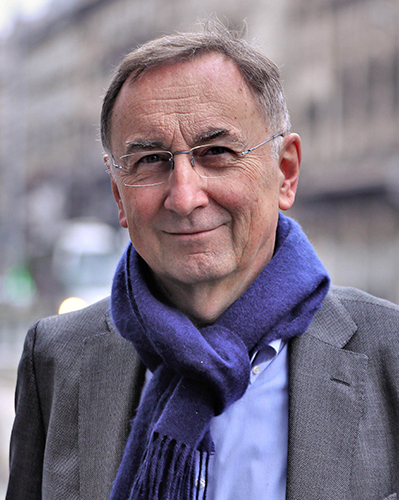
Earlier, he was Acting Executive Director for Conservation (2014), and Policy and Science Director (2012-2014), at WWF International. He directed the UNSG’s Climate Change Support Team (2008-2010) and later was Executive Secretary of the UNSG’s High-level Panel on Global Sustainability (2010-2012). In 2007 he directed the Geneva-based UN Environment Management Group (EMG). During 1993-2006 he worked and over time held many responsibilities at the Climate Change Secretariat (UNFCCC), initially in Geneva and later in Bonn.
His other assignments included: the Secretariat of the UN Conference on Environment and Development (Earth Summit ’92); Stockholm Environment Institute; United Nations Environment Programme (UNEP); Secretariat of the World Commission on Environment and Development (Brundtland Commission); the Beijer Institute; and the World Council of Churches. He has BSc and MSc degrees from the Massachusetts Institute of Technology (MIT).
CHEN Ying (China), Senior Research Fellow, Chinese Academy of Social Sciences (CASS)
Dr. Ying Chen, female, graduated from Chemical Engineering Department of Tsinghua University, is a Senior Research Fellow at Research Institute for Eco-civilization (RIEco), Chinese Academy of Social Sciences (CASS), Deputy Director of CASS Research Center for Sustainable Development (RCSD) and Professor at CASS Graduate School, Lead Author of Intergovernmental Panel on Climate Change (IPCC) the Fifth Assessment Report (AR5) and AR6 Working Group III, member of UNESCO COMEST. She is a vice Chairman of Chinese National Committee for Future Earth (CNC-FE), vice Director of Environmental Economics Branch of Chinese Society for Environmental Sciences, vice Director of Climate Change and Low Carbon Development Committee of Chinese Meteorological Society, and vice chief editor of Greenbook on Climate Change.
Her research interests include environmental economics and sustainable development, energy and climate change policy as well as international climate regime etc. She published 4 books (as co-author), over 100 papers in academic books, journals, as well as reports, analysis and articles. Awards include China eco-civilization award, National Award for Outstanding Popular Science Works, Pushan Award for Excellent Paper on International Economics, Sun Yefang Award for Excellent Paper on Economics and CASS Award for Excellent Research Achievements, etc.






